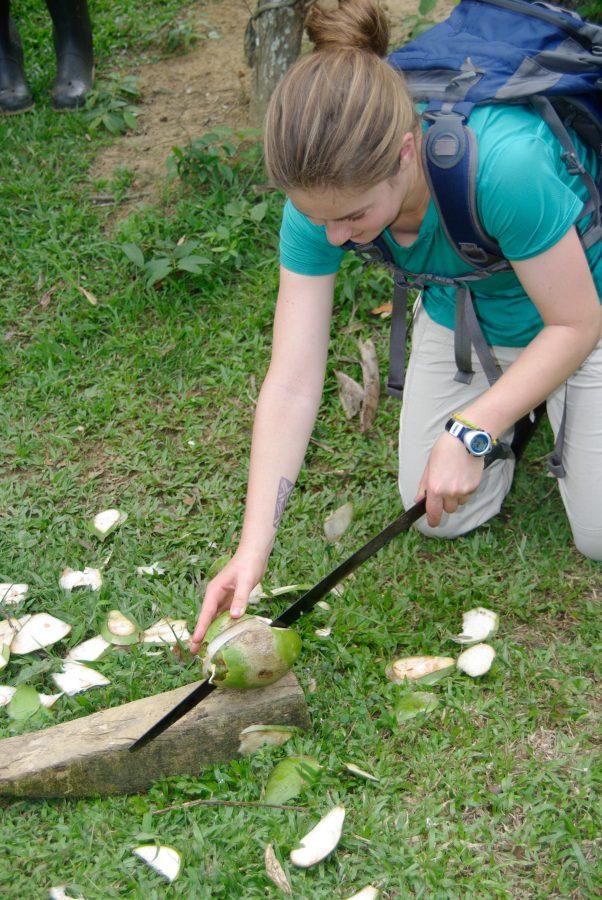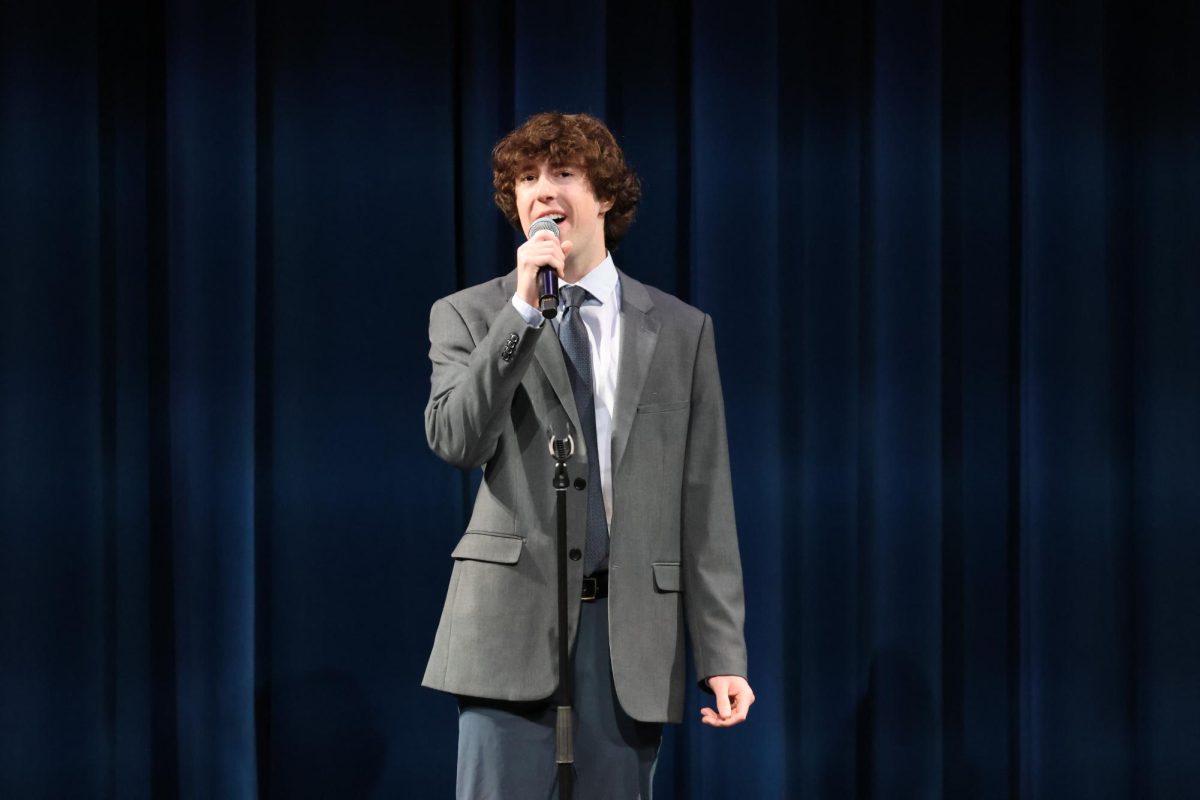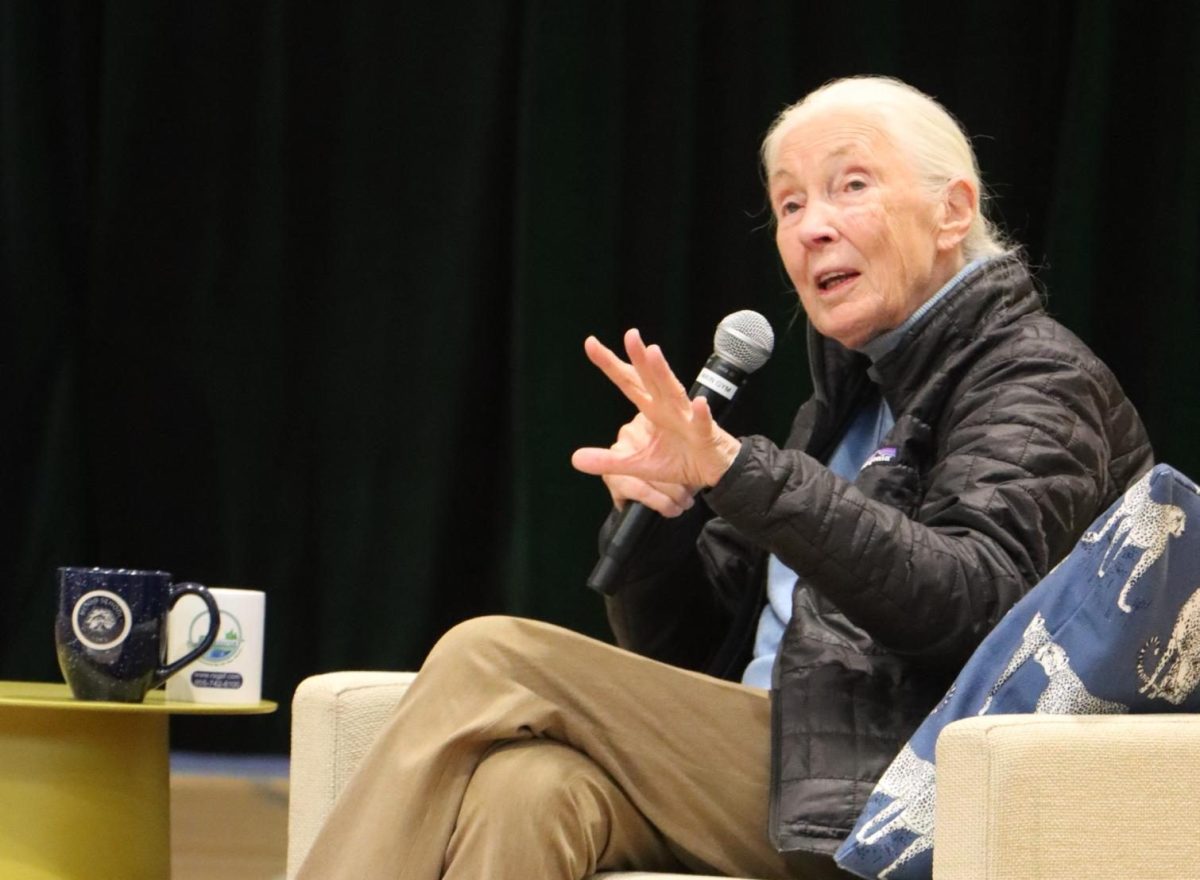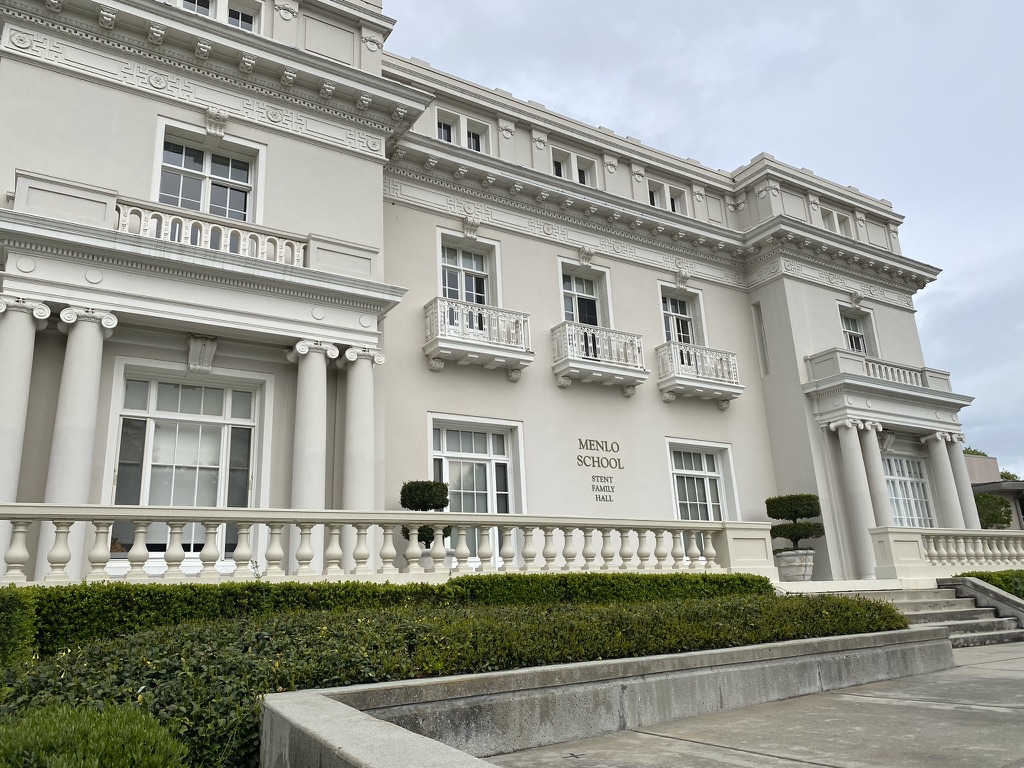When perusing this year’s Knight School catalog, high-action courses like science teacher David Spence’s New Zealand backpacking trip likely stands out to both students and parents. The learning opportunities presented in such trips are unique and engaging, but also prompt curiosity surrounding the liabilities that trip leaders must consider when planning their courses. Though the school always makes safety its first priority, liability has not been a large issue when planning most of this year’s courses. Rather, offerings this year differ mostly due to “increase in community service…and arts oriented Knight Schools,” and the amount of courses “aimed at living a healthy life,” Knight School Director Peter Brown said. Costs for trips are also higher this year because of the “increase in airfare and gas prices,” Brown said. Two other new changes some people have interpreted as being related to liability are the new 21 person cap on trips and the new rule that no one can take separate flights on trips to accommodate for students’ personal issues. In reality, “the trip cap was made to replicate class sizes at Menlo…and to preserve intimacy,” Brown said. Brown also negated the claim that the separate flights rule was put in place for liablility reasons. “[We] don’t want a teacher to have to leave the group to escort a student to a separate flight,” Brown said. “It’s detrimental to the rest of the group.”
Although liability isn’t a priority this year, it is still a prevalent issue for some. Spence’s trip itinerary is one of the few significantly affected by liability concerns, and for this reason, Menlo hired an outside organization to help with trip planning. According to Spence, the tour company is also helping take care of liability. “I would have [otherwise] planned the whole trip myself,” Spence said. Spence had originally hoped to include opportunities like bungee jumping, but realizes that there is always a risk of a student defying safety rules, keeping students safe is more important. “It would also have been an optional activity,” Spence added, acknowledging that some students may have wished to opt out. Even things that did make the itinerary, like black water rafting, had to be discussed by the school before approval, and activities still under consideration, like zorbing, or rolling down hills in large inflatable hamster balls, will most likely be optional. “Really, the most dangerous thing we’re going to be doing is driving. I think there’s just a lot of perceptional risk,” Spence said. “You have to balance risk with opportunity.”
Courses involving travel are not the only ones in which liability becomes a curiosity. Jazz band instructor Mark Warren, for example, is leading a local community service course in which students will spend the week building houses with Habitat for Humanity. After a day of safety training, participating students will use power tools and work with nails and other building materials daily. According to Warren, he did not consider liability when planning his course because, “I know the school is very conscious of it already.” Rather, he imagines what he would like to teach during Knight School, and ensures the school’s approval as a final step. “It’s not that I’m careless; I just don’t feel like I need to be overly concerned with liability when Menlo already does a really good job of that,” Warren explained. “If I was really concerned about liability, I probably wouldn’t do anything with kids.”
Even courses from previous years provide insight into liability’s role in Knight School, such as Skiing in the Backcountry, offered during Knight School 2011. Led by chorus director Karen Linford, students in this course traveled to Kirkwood for the week to learn proper technique for skiing in ungroomed and unpatrolled areas. Linford believes that her course was a safety precaution rather than a liability concern, because students taking her course would likely ski in the backcountry regardless of participation in the course. Considering the avalanches and other safety hazards characteristic of off-trail skiing, she sees her course as extremely valuable to advanced skiers. “They’re learning how to be safe and how to respect the mountain because even if you have all the right gear, when it comes right down to it, it’s really the mountain that’s in charge,” she reflected. “It’s an investment in knowledge.”
Rather than focusing on these liability issues, Brown hopes that students will focus on having a “learning experience where they gain some kind of skill or knowledge.” He also wants there to be an increase in initiative and leadership from the student body, saying “there are 19 students co-teaching this year, and I want Knight School to be more about this personal vision…It’s fantastic that the number of kids on the Knight School committee has increased to seven students from two last year. The more students involved, the better.” While Lexi Van Ligten, a sophomore on the Knight School Committee agrees that students’ voices should be a greater part of the Knight School developmental process, she “doesn’t know how much effect they actually have[…] A low percentage of MyMenlo suggested courses are actually accepted,” Ligten said. She believes that if there was more of a process to help students design courses or guidelines for them to follow, the acceptance rate for student-designed courses would increase. “Pairing students and teachers together when designing the courses could help the teach the students to be more organized about planning. While the system is adequate now, it definitely could improve,” she said.
Overall, although liability and safety are certainly concerns, if the school was overly cautious about predicting things that could go wrong, “we would never be able to go anywhere,” Brown said. With the Egypt trip two years ago, which was eventually cancelled due to safety issues in the country at the time, the school watched the US State Department Travel Advisory and looked at newspapers to gage the safety of Egypt as the as the trip got closer and closer, but never planned a back up option. We trust the teachers to have “lots of discretion” when designing the courses, Brown said. If a trip needs to be changed for safety reasons later in the year that will happen, but, for the most part, liability issues are dealt with quietly behind the scenes while learning, experiencing new things, and having fun is emphasized to the Menlo community.
Serious Fun? Serious Liability? How Knight School handles the challenges that come with untraditional courses
October 23, 2012
Leave a Comment
More to Discover








